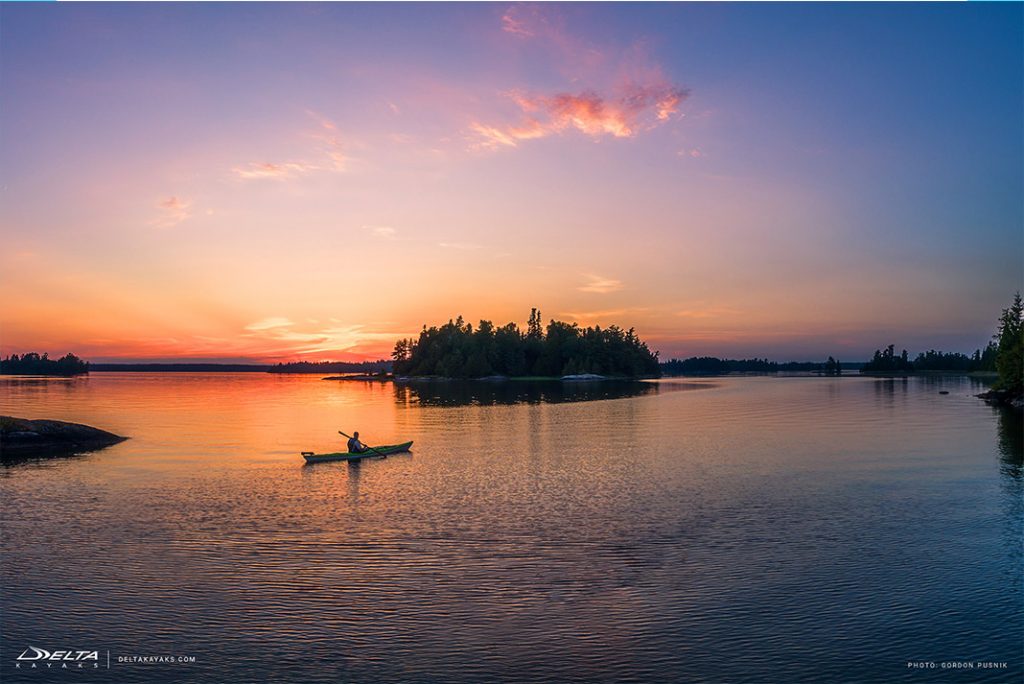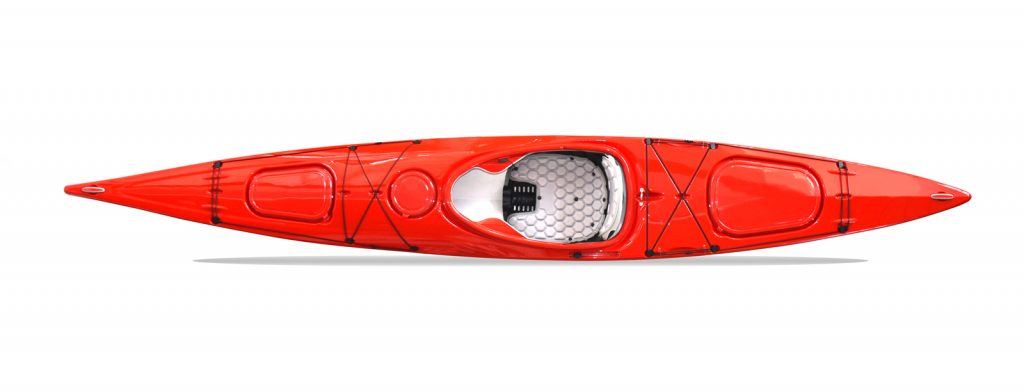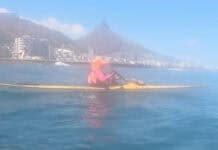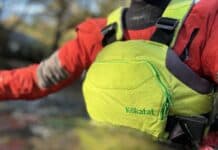Overseas knockoffs are nothing new in the paddling business, but it hits a little harder when it’s your baby they’re ripping off.
Last year, Chinese company, Hangzhou Kudo Outdoors Inc., sent drawings of their Delta Kayaks knockoff to a handful of specialty retailers that Delta has been doing business with for years. It didn’t take long for the plans to find their way back to Delta’s sales and marketing manager, Michael Squarek, who said the dimensions on the drawings matched the company’s top-selling Delta 14 exactly. In case the resemblance wasn’t clear enough, the computer file was labeled “Delta 14.”
Only the hatches and rudder were different, which Squarek believes was to match Kudo’s existing tooling. The Chinese company has a long track record as a supplier of kayak components and paddles to North American companies—including Delta and some of its biggest specialty retailers.
Relationship status update: It’s complicated.
When Delta learned of the counterfeiting effort in November 2019, they sent a cease and desist letter to Kudo Outdoors, which denied any wrongdoing. Soon after that the knockoff Delta 14 popped up on Alibaba under a new company, Ningbo Real Young Kayak Co., Ltd. Ningbo is about 100 miles down the road from Kudo’s headquarters in Hangzhou. A seemingly identical boat has since appeared on the website of yet another company, Ningbo Ridgeside Outdoors Co., Ltd.

According to the Real Young Kayak Alibaba listing, the knockoffs can be had for $480 apiece, or $450 in quantities of 60 or more.
Reached by email, a Ridgeside Outdoors sales representative, Ellen Tang, said the company’s Thermoforming 14 kayaks are currently in production. “Our kayak is similar to the Delta 14 thermoformed kayak, but we also have many differences,” she wrote. “If you know Delta kayak, you must take a few of our kayak for try and test, we have confidence with our kayak we have better design and price.”
It’s a familiar pitch. If you’ve spent any time at all in retail paddlesports you’ve received those too-good-to-be-true offers from overseas manufacturers and middlemen. And on the manufacturing side, having your design stolen is almost a rite of passage.
Shane Benedict, head of design at Liquidlogic and Native Watercraft, has lost count of how many of his boats have been copied over the last 15 years—everything from the Space Cadet whitewater playboat the company’s flagship fishing kayaks. Recently, Native has seen almost exact copies of its top-selling Slayer Propel series of pedal-drive fishing kayaks. “They even copied some of the hull features that I put in by hand trying to address simple fit issues for things they didn’t use in the boat,” Benedict said. “Just straight up copies.”
The copycats also make liberal use of original companies’ photos and catalog copy, often with hilariously inept results. A description of the Ridgeside website starts with tightly wrought ad copy lifted word-for-word from Delta’s online catalogue, followed by a Google translate meltdown: “The Rideside 14’Kayak is made of high impacted ABS cover with UV resistant Acrylic, shining strong and durable.”
Companies that can’t be bothered to spell their own name correctly or understand the purpose of hull features they’re copying will naturally have some quality control issues. That’s been the saving grace for North American companies so far.
“The quality gap is still large enough that the choice is still very obvious,” Benedict said. “If you want a smoothly functioning and durable product, go with the tried and true. If price is the main concern you get what you pay for.”
While many western companies are happy with the quality of boats and accessories they source from Chinese manufacturers, the copycats are playing in a different league. In fact, they’re playing another game altogether, focusing on volume and churn over long-term relationships.
“I can’t imagine a specialty dealer in North America carrying a boat if they knew it was a copy,” said Eddyline kayak’s president Scott Holley, who took over when founders Tom and Lisa Derrer retired. Eddyline’s designs have not been ripped off—not yet. “We keep looking for a ‘Freddyline’ kayak to pop up somewhere,” Holley said.
Ryan Bayes, owner of Western Canoe Kayak and Clipper Canoes in Abbotsford, B.C., said quality is the ultimate backstop. “You can cut the price all you want, but if I have to refund somebody three months later because it split in half, I’m still not ahead of the game.” Those Alibaba prices aren’t always what they seem either. By the time you add shipping and import duties, “That $500 becomes $900 real quick.”
Western is one of the retailers that tipped Squarek to the pirated Delta 14 drawings last year, and while Bayes still deals with Kudo Outdoors he draws the line at copycat products. “They just sent us 20 paddles and they were such a blatant knockoff of Aqua-Bound and Werner that we just straight up told them no—we’re not going to do that,” he said.
Call it a social contract. For many people who came up in the paddlesports business, refusing to sell a carbon-copy kayak is no different than chasing gear after somebody swims. It’s just what you do.

“I’m not worried about the specialty retailers,” Squarek said. “I’m worried about the Dick’s Sporting Goods and Walmarts, where the buyers would never know it’s a copy of anything and just go on price.” If they do, there’s not much a manufacturer like Delta can do to stop them. Cease and desist orders are toothless. Patents are expensive, and they put your best technology into a database that’s searchable from anywhere in the world. It’s possible to block imports if you can prove to Canadian and U.S. customs agencies that they’re exact copies—a task likely to require a great deal of time and a herd of lawyers.
“That’s hundreds of thousands of dollars,” Squarek said, and that money is better spent on innovation. “Our focus will be that we’ll just make a better product. It’ll just kick us in the pants to do what we do better.”









Appreciate the article on Delta kayaks. Don’t be fooled, Walmart, and dicks know exactly what they are buying. Maybe do some research on Walmart and dicks actually initiating the copy themselves. China made Walmart and Dicks.
I’ve been to China. I love the Chinese people. But this is a great example of cultural clash. The Chinese do not understand the concept of intellectual property as we do. It’s all about the money, period.
Supporting the people who put their hearts and minds and souls into paddling is the moral thing to do.
Bahaha Jeff Moag nice bio!